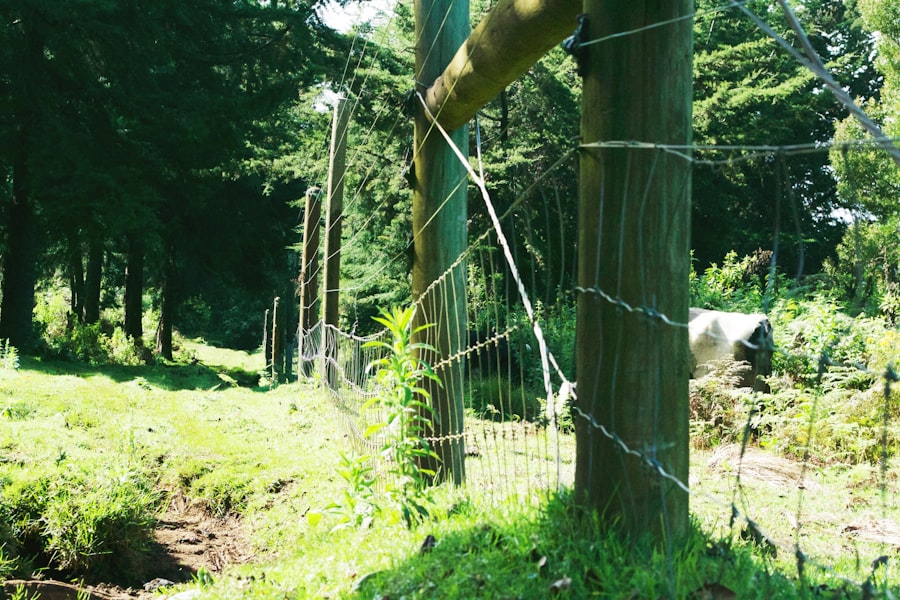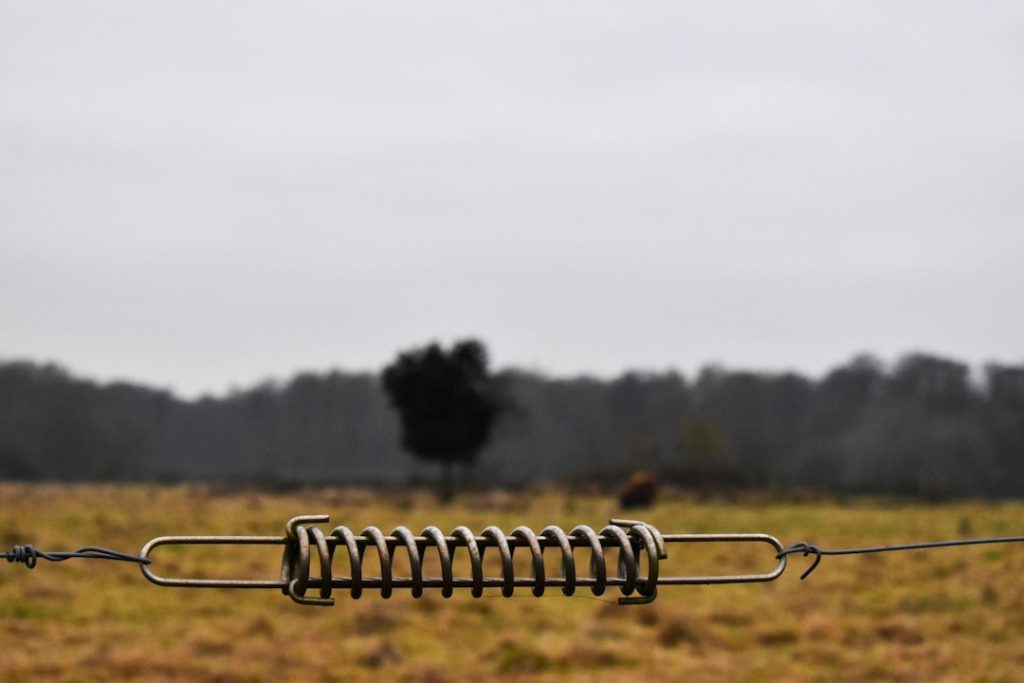Foxes are intelligent and adaptable predators that present a significant risk to chickens. Their stealthy nature and agility enable them to infiltrate chicken coops effectively. Foxes are most active during dawn and dusk, coinciding with periods when chickens are particularly vulnerable.
These predators often exhibit persistent behavior, frequently revisiting areas where they have successfully hunted before. Understanding fox behavior is essential for chicken owners to implement effective protection strategies. As opportunistic hunters, foxes exploit any weaknesses in chicken enclosures.
They possess the ability to burrow beneath fences, scale obstacles, and squeeze through small gaps to reach their prey. The fox’s intelligence and adaptability make them a challenging threat for chicken owners to manage. It is vital to acknowledge the danger foxes pose to chickens and implement proactive security measures to safeguard coops and deter these predators.
Table of Contents
- 1 Securing the coop: Tips for fortifying your chicken enclosure
- 2 Implementing deterrents: How to discourage foxes from approaching your chickens
- 3 Supervising free-range chickens: Strategies for keeping an eye on your flock
- 4 Nighttime precautions: Protecting chickens during vulnerable hours
- 5 Utilizing guardian animals: Using dogs or other animals to protect your chickens
- 6 Being vigilant: Staying alert and proactive in safeguarding your chickens from foxes
- 7 FAQs
Key Takeaways
- Foxes pose a significant threat to chickens, as they are natural predators and can easily access coops.
- Fortify your chicken enclosure by using sturdy fencing, secure latches, and predator-proofing measures to keep foxes out.
- Implement deterrents such as motion-activated lights, noise makers, and strong-smelling substances to discourage foxes from approaching your chickens.
- Keep a close eye on your free-range chickens by using fencing, supervision, and designated foraging areas to minimize their vulnerability to fox attacks.
- Protect your chickens during nighttime hours by securely locking them in their coop, using automatic door closers, and installing predator-proofing measures.
Securing the coop: Tips for fortifying your chicken enclosure
Inspect and Reinforce the Perimeter
Start by inspecting the perimeter of the enclosure for any potential entry points, such as gaps in fencing, holes under the coop, or weak spots in the structure. Reinforce the fencing with hardware cloth or welded wire to prevent foxes from digging underneath or squeezing through gaps.
Secure the Coop Itself
In addition to fortifying the fencing, it’s important to secure the coop itself. Make sure that all doors and windows are securely latched and that there are no gaps or openings where a fox could gain access.
Deter Predators with Additional Measures
Consider installing motion-activated lights or alarms around the perimeter of the coop to startle and deter any approaching predators. It’s also a good idea to remove any potential hiding spots near the coop, such as tall grass or brush, which could provide cover for a fox to approach undetected. By taking these proactive measures, you can significantly reduce the risk of a fox infiltrating your chicken enclosure.
Implementing deterrents: How to discourage foxes from approaching your chickens

In addition to fortifying the coop, there are several deterrents that can be implemented to discourage foxes from approaching your chickens. One effective method is to use scent-based deterrents, such as predator urine or strong-smelling plants like lavender or mint, which can help mask the scent of chickens and deter foxes from approaching. Another option is to use visual deterrents, such as scarecrows, reflective tape, or predator decoys, which can startle and intimidate foxes.
Another effective deterrent is to make the area around the coop less appealing to foxes by removing potential food sources, such as fallen fruit or garbage, which can attract these predators. Additionally, consider using motion-activated sprinklers or sound devices near the coop to startle and deter any approaching foxes. By implementing these deterrents, you can create an environment that is less inviting to foxes and reduce the likelihood of an attack on your chickens.
Supervising free-range chickens: Strategies for keeping an eye on your flock
If you allow your chickens to free-range during the day, it’s important to supervise them closely to ensure their safety from foxes and other predators. Consider using temporary fencing or electric netting to create a secure area for your chickens to roam while still providing them with access to fresh grass and insects. This can help limit their exposure to potential threats while still allowing them some freedom to explore.
Another strategy is to use guardian animals, such as dogs or geese, to help protect your free-range chickens from foxes. These animals can help deter predators and alert you to any potential threats, providing an extra layer of security for your flock. Additionally, consider using portable chicken tractors or pens that can be moved around the yard to provide your chickens with fresh foraging opportunities while still keeping them safe from predators.
By supervising your free-range chickens and implementing these strategies, you can help minimize the risk of a fox attack.
Nighttime precautions: Protecting chickens during vulnerable hours
Nighttime is when chickens are most vulnerable to fox attacks, as these predators are most active during the early morning and late evening hours. It’s crucial to take extra precautions to protect your flock during this time. Start by securely locking up the coop at night to prevent any potential entry by foxes or other predators.
Make sure that all doors and windows are tightly closed and latched, and consider adding additional locks or reinforcements for added security. Another important precaution is to install predator-proofing measures within the coop itself, such as using heavy-duty latches and hardware cloth on windows and vents to prevent foxes from gaining access. Consider adding roosts that are elevated off the ground and enclosed in wire mesh to provide an extra layer of protection for your chickens while they sleep.
It’s also a good idea to periodically check on your chickens during the night using a flashlight or motion-activated cameras to ensure their safety and security. By taking these nighttime precautions, you can help safeguard your chickens from potential fox attacks while they are at their most vulnerable.
Utilizing guardian animals: Using dogs or other animals to protect your chickens

Canine Guardians
Dogs, in particular, are known for their protective instincts and can be trained to patrol the perimeter of the chicken enclosure and deter any potential threats. Breeds such as Great Pyrenees, Anatolian Shepherds, and Maremmas are well-suited for this role due to their natural guarding instincts and loyalty to their flock.
Avian Guardians
In addition to dogs, other animals such as geese or guinea fowl can also serve as effective guardians for chickens. These birds are naturally territorial and will alert you to any potential threats while also intimidating predators with their loud calls and aggressive behavior.
Enhanced Protection
By utilizing guardian animals, you can provide an extra layer of protection for your chickens and help deter foxes from approaching your flock.
Being vigilant: Staying alert and proactive in safeguarding your chickens from foxes
Ultimately, being vigilant is key to safeguarding your chickens from foxes and other predators. Regularly inspect the perimeter of the coop for any signs of potential entry by foxes, such as tracks or digging, and promptly address any vulnerabilities that you find. Keep an eye out for any unusual behavior from your chickens, as this could be a sign that a predator is lurking nearby.
It’s also important to stay informed about local wildlife activity in your area and take proactive measures to protect your flock accordingly. Consider joining local poultry or homesteading groups to share information and strategies for safeguarding chickens from predators like foxes. By staying alert and proactive, you can help minimize the risk of a fox attack on your chickens and ensure their safety and well-being.
If you’re looking for ways to keep your chickens safe from foxes, you may also be interested in learning about the best kind of coop for chickens. Check out this article on what kind of coop is best for chickens to ensure your feathered friends have a secure and comfortable home.
FAQs
What are the main threats to chickens from foxes?
Foxes are a common predator of chickens and pose a significant threat to their safety. Foxes are known to be skilled hunters and can easily access chicken coops and yards to prey on chickens.
How can you keep chickens safe from foxes?
There are several measures that can be taken to keep chickens safe from foxes. These include securing the chicken coop with strong fencing, using predator-proof latches on doors, installing motion-activated lights or alarms, and using guard animals such as dogs or llamas to deter foxes.
What are some signs that a fox has been targeting chickens?
Signs that a fox has been targeting chickens include missing or injured chickens, feathers scattered around the coop or yard, and evidence of digging or attempts to access the coop.
Are there any natural deterrents for foxes?
Some natural deterrents for foxes include planting strong-smelling herbs or flowers around the coop, such as lavender or marigolds, and using predator urine or scents to create a barrier around the coop.
What should you do if you suspect a fox is targeting your chickens?
If you suspect a fox is targeting your chickens, it is important to take immediate action to secure the coop and protect the chickens. This may involve reinforcing fencing, installing deterrents, and seeking assistance from local wildlife authorities if necessary.
Meet Walter, the feathered-friend fanatic of Florida! Nestled in the sunshine state, Walter struts through life with his feathered companions, clucking his way to happiness. With a coop that’s fancier than a five-star hotel, he’s the Don Juan of the chicken world. When he’s not teaching his hens to do the cha-cha, you’ll find him in a heated debate with his prized rooster, Sir Clucks-a-Lot. Walter’s poultry passion is no yolk; he’s the sunny-side-up guy you never knew you needed in your flock of friends!







